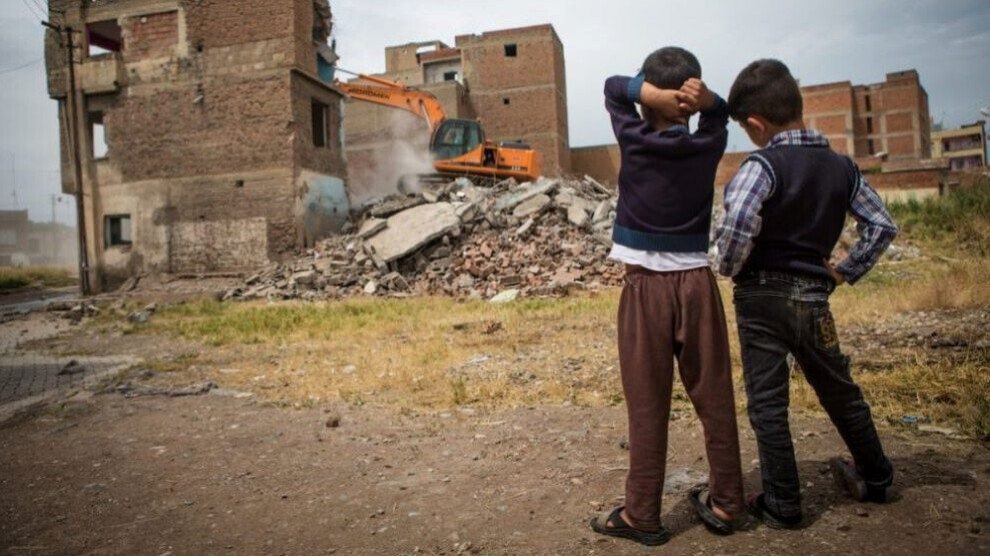HDP: Children's most basic rights are under threat in Turkey
“Reservations on the Rights of the Child should be removed, and the right to education in the mother tongue should be guaranteed,” demands the HDP.
“Reservations on the Rights of the Child should be removed, and the right to education in the mother tongue should be guaranteed,” demands the HDP.

HDP Vice Co-Chair Responsible for the Language, Culture, Art and Education Policies Commission Salim Kaplan sent a letter on 20 November World Children's Day to various international institutions, including the UN Committee on the Rights of the Child, PACE Committee on Equality and Non-Discrimination, UNESCO and UNICEF.
According to the HDP, the UN Children’s Rights Committee should undertake an observer duty to force all parties that signed the Convention fulfill their responsibilities for the implementation of the Convention on the Rights of the Child in Turkey to guarantee all other rights of children, especially the right to education in their mother tongue, and to implement universal legal norms.
The letter by HDP’s Kaplan includes the following:
“After the Convention on the Rights of the Child adopted by the United Nations on November 20, 1989, 20 November is recognized as the World Children's Rights Day every year. The Convention on the Rights of the Child imposes obligations on states to improve the living conditions of children. However, millions of children deprived of children's rights in Turkey are forced to live with problems greater than their age.
Turkey is violating the three most important rights that will affect the material, moral, cultural and social existence of the child, with three reservations made to the 17th, 29th and 30th articles of the UN Convention on the Rights of the Child. These cause the child, who is a social subject, to be deprived of his rights by ignoring his past and hindering his future. Child abuse, discrimination and violence against girls, child labour, refugee children, children with disabilities, children in prison, children in the grip of war and physical violence, increasing dependency as a result of social and economic conditions, seizing of children’s right to education in their mother tongue and exposure to assimilation policies take place in Turkey's child report.
Multilingual or bilingual education models are developed and implemented in many countries of the world, including some authoritarian states. However, in Turkey, receiving education in their mother tongue is strictly prohibited by Article 42 of the Turkish Constitution for children whose mother tongue is not Turkish, especially Kurdish children. In addition, other ethno-religious groups in Turkey are forced to take compulsory religion classes and are deprived of learning their own beliefs. Today, millions of children living in Turkey cannot receive education in their mother tongue. Children who are deprived of education in their mother tongue due to legal obstacles shaped by an anti-democratic understanding that is contrary to pedagogical formation are both ruptured from their mother tongue and led to being removed from their cultural habitus.
It is crucial to provide education in their mother tongue and to ensure and implement equality of rights and opportunities for children, who are the continuation of the common future of humanity, to live in a more fair, free, democratic and peaceful world. Children's rights are also fundamental human rights. The restrictive and prohibitive practices regarding children's rights in Turkey show that children's rights remain only on paper. Children's most basic rights, especially education, life and cultural rights, are under threat.
On the occasion of 20 November World Children's Day, we think that the UN Children’s Right Committee should undertake an observer duty to force all parties that signed the Convention fulfill their responsibilities for the implementation of the Convention on the Rights of the Child in Turkey to guarantee all other rights of children, especially the right to education in their mother tongue, and to implement universal legal norms. The implementation of the aforementioned universal legal norms by the parties remains a historical responsibility of the relevant committee of the UN. On the occasion of today, it is crucial that you encourage the countries that have made reservations to remove these reservations and that you activate supervisory mechanisms and that remind them the significance of each article of the contract and their place in the child development.”